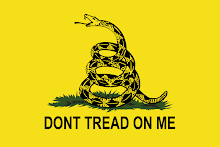The case of Arizona v. Johnson (No. 07-1122) intrigues me. The issue is:
Whether, in the context of a vehicular stop for a minor traffic infraction, an officer may conduct a pat-down search of a passenger when the officer has an articulable basis to believe the passenger might be armed and presently dangerous, but had no reasonable grounds to believe that the passenger is committing, or has committed, a criminal offense.
According to a passing reference in the New York Times,
A Tucson police officer testified that she had searched a passenger, Lemon M. Johnson, because he was wearing gang colors and seemed dangerous, not because he was suspected of having committed a crime.
The search yielded a gun and marijuana. An Arizona appeals court overturned Mr. Johnson’s conviction, saying the evidence against him should have been suppressed because the search was unconstitutional.
The SCOTUS jurisprudence is very complex for Fourth Amendment searches for occupants in a car. Due to the late hour, I cannot recall the exact names of the landmark cases (please feel free to help out in the comments section), but Fourth Amendment priciples are generally based on a balancing test. On one side is the individual's interest in "privacy" (really, his interest in not being molested/abused by the police) and on the other side sits the police officer's interest in self protection.
Certainly, as the gang shootout last night near the DNC's convention site demonstrates, the police have legitmate security concerns. (However, they get to carry guns and handcuff people too, so they are far from defenseless.)
Yet I cannot help but believe that our rights are very important. We do not want the police state that the United Kindom has become-- where big brother watches over your shoulder and it is a crime for old men to wear a hat lest they "hide their identities."
Lest you think I'm jumping too far: look at what the officer identified as the "basis to believe the passenger might be armed and presently dangerous." She said he was wearing gang colors. Guess what folks, gang colors encompass just about every general color possible. Indeed now police are saying that gang members no longer display their colors to avoid police detection. In other words, anyone wearing any color or "looking dangerous" (whatever that means) can be searched in a car they are riding in if the SCOTUS upholds the police officer's actions.
Based on the SCOTUS' tendancy to defer to the police, I suspect that the officer's actions will be upheld. Remember that it is police officers who serve as security detail for high-ranking judges (in the case of the SCOTUS, it is the Secret Service) and thus, in a very real way, the judges' lives depend on the police. That is why the judicary is so deferential to the police.
I do not fully know the facts of the case and I suspect that the suspect was a gangbanger scumbag, but rights need to be upheld for everyone, otherwise they apply to no one.


Laws are made for men of ordinary understanding and should, therefore, be construed by the ordinary rules of common sense. Their meaning is not to be sought for in metaphysical subtleties which may make anything mean everything or nothing at pleasure. - Thomas Jefferson
ReplyDeleteThe truth is, that, even with the most secure tenure of office, during good behavior, the danger is not, that the judges will be too firm in resisting public opinion, and in defence of private rights or public liberties; but, that they will be ready to yield themselves to the passions, and politics, and prejudices of the day.
ReplyDeleteJoseph Story (1779-1845), U.S. Supreme Court Justice